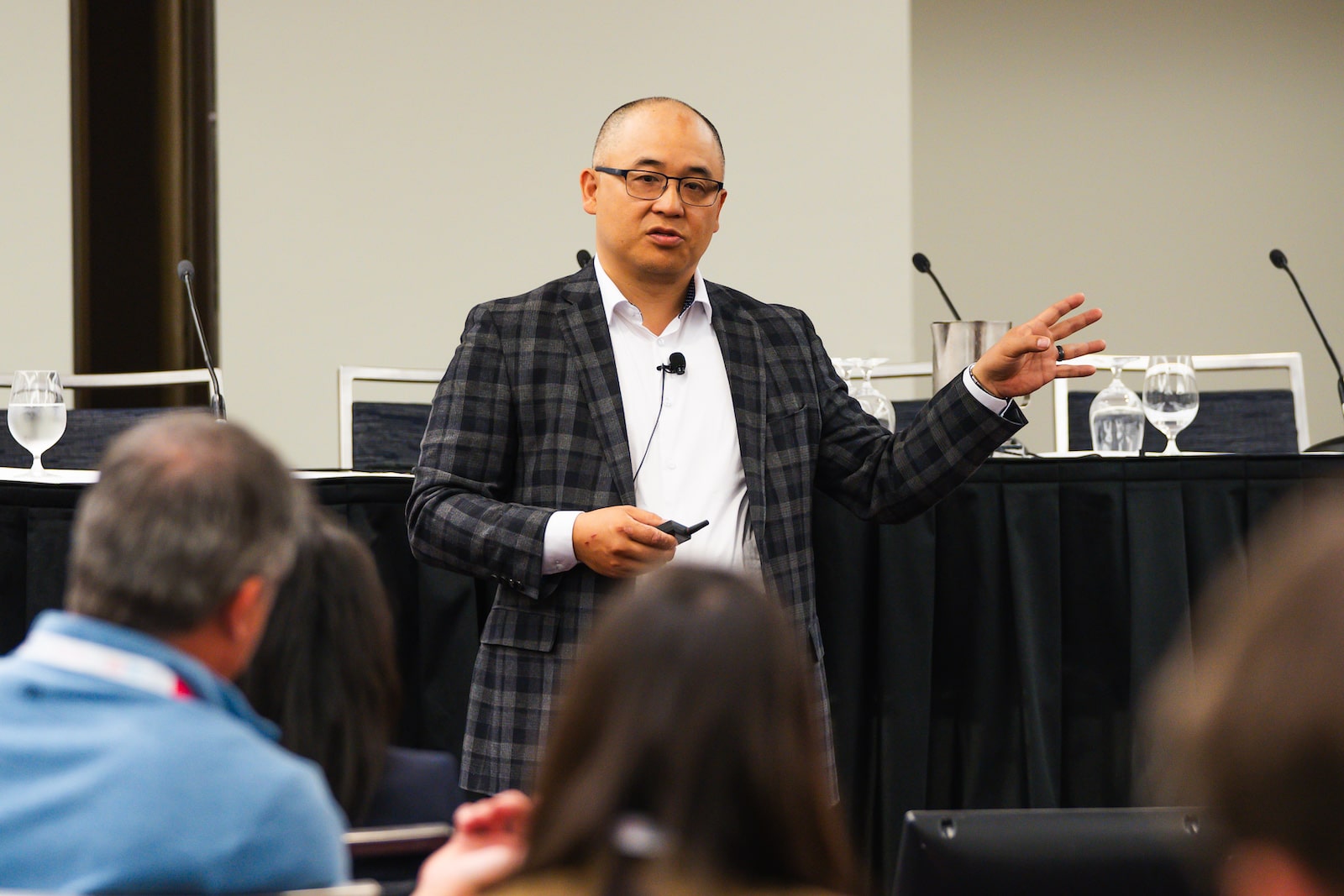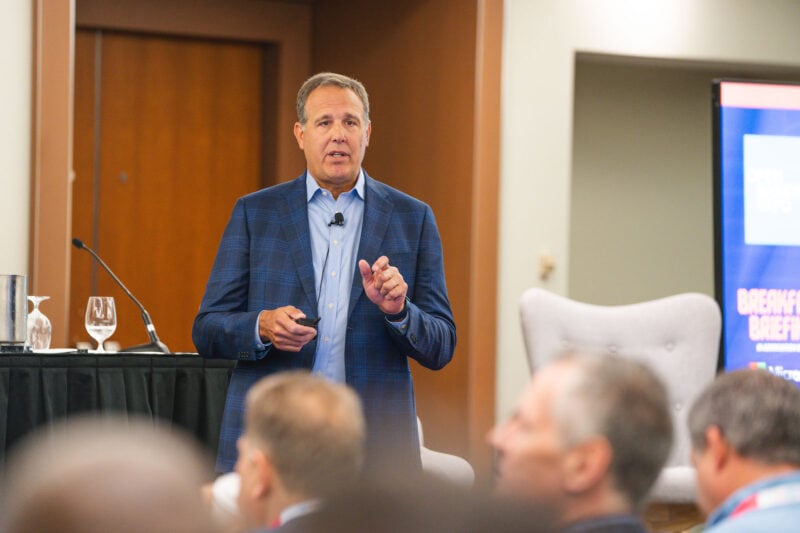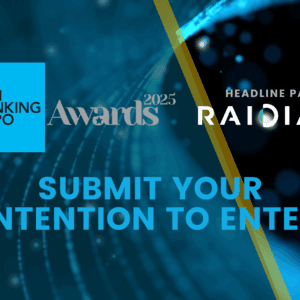

VMware, Microsoft: Banks are deploying AI for ‘deepening relationships and smart servicing’
Ellie Duncan | News
19 Jul 2023
Account aggregation, personalised financial management, enhanced security and comparison platforms have emerged as some of the compelling Open Banking and AI use cases, according to VMware’s Steve Fusco and Wayne Cheng of Microsoft.
They were speaking at a breakfast briefing at Open Banking Expo Canada on June 15, which provided an overview of the current Open Banking and AI landscape, and provided some interesting insight into what was coming from both VMware and Microsoft.
Fusco, a CXO strategist and the financial services industry director at VMware, told delegates that banks are increasingly using AI to “deepen relationships and provide smart servicing to customers”.

Steve Fusco of VMware
“The powerful combination of Open Banking and AI becomes clear when considering the potential of account aggregation,” according to Fusco. He told attendees: “Account aggregation would be the idea that you could have accounts with multiple banks, or financial services institutions – AI could aggregate all that information and then make recommendations based on your entire portfolio, not just that particular bank.”
He also highlighted comparison platforms as a powerful example that already exists in the insurance sector “where you can see competitors all in one place and get a price for insurance”.
“This is going to happen more in terms of financial services, being able to take everything in one place. If I’m looking to make a trade, I’m going to be able to do all of this in one place,” Fusco explained.
The final area that Fusco highlighted was security and enhanced authentication. Given the number of transactions occurring at a financial services institution every day, AI can play a crucial role in identifying anomalies that deserve further scrutiny, thereby enhancing security without degrading service for most customers, he argued.
Cheng, who works at Microsoft and leads the Azure infrastructure business for the financial services industry, told delegates: “Generative AI is being embraced at an unprecedented rate, making it one of the fastest-adopted technologies we have witnessed in generations.”
AI “is not new”, according to Cheng, who shared that the origins of AI have been around since the 1950s, predominantly in the field of academia. By 2017, he explained, AI started to experience more breakthroughs in “Deep Learning”, which is a type of machine learning that uses artificial neural networks to enable digital systems to learn and make decisions based on unstructured, unlabelled data. These capabilities have many practical applications and have made many modern innovations possible, including Generative AI, Cheng explained.
“If you look at past history, technology has always been a multiplier of GDP growth. It creates secondary and tertiary markets that were never in existence. I believe AI is going to create secondary, tertiary markets that we don’t know what they’re going to be just yet,” Cheng explained.
Fusco also addressed the fact that tech giants, like Amazon and Google, are “getting into payments and working their way into the industry”.
“They have the money, they have the will, and they understand the value and they’re going after this industry,” he said.
“As a bank, if you’re not looking at Open Banking, and partnering, and getting access to the resources you need to fill any gaps in your portfolio to serve your customers, you’re going to get left behind, in my opinion.”
In closing remarks, Cheng added: “At Microsoft, we believe that the true value of AI lies not only in its capabilities but also in our commitment to ethical practices. By prioritizing responsible AI, we can build trust, protect privacy, and ensure a positive impact on society.”








